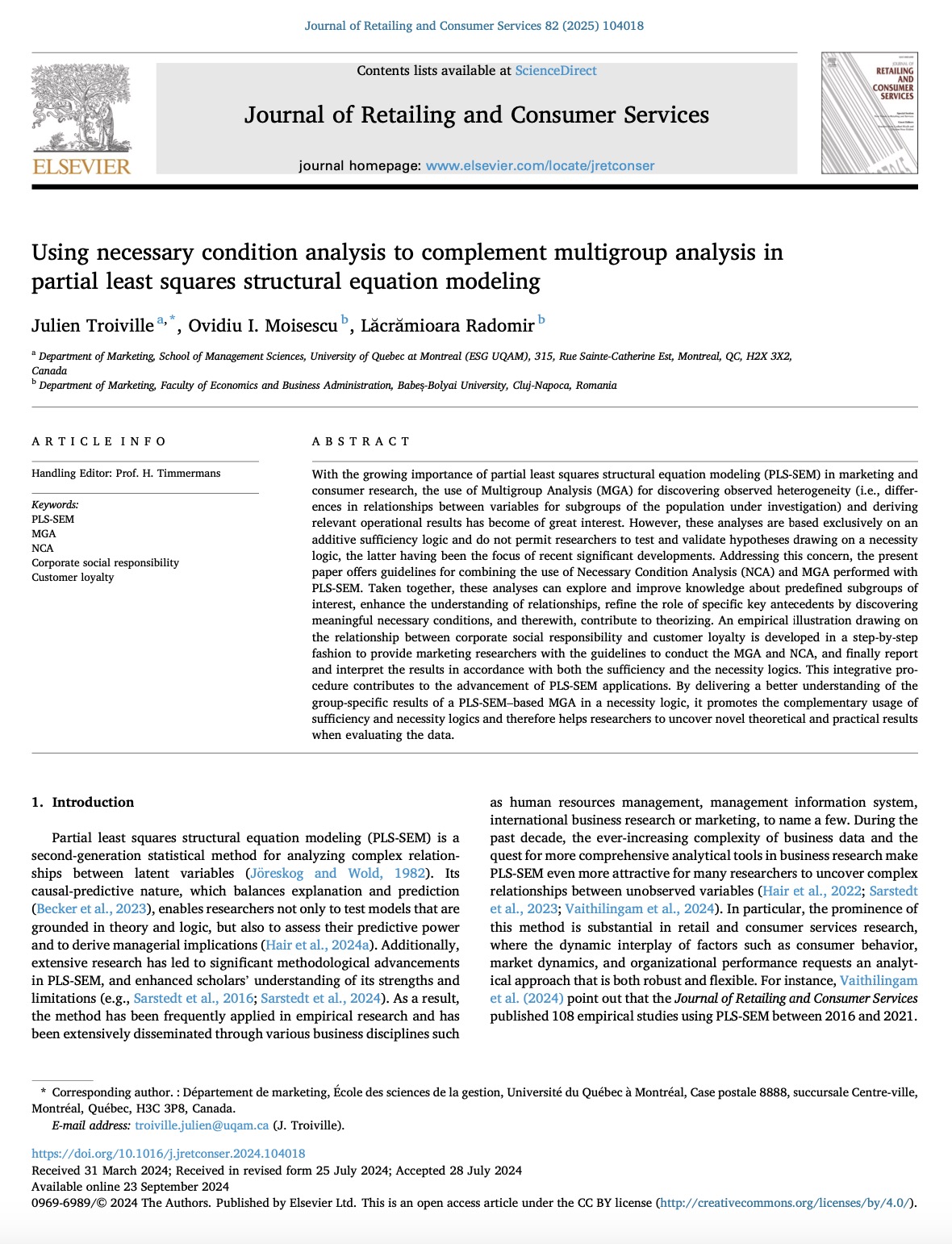|
|
|
Troiville, J.; Moisescu, O.I. & Radomir, L. (2025) Journal of Retailing and Consumer Services [Core Economics, Q1]
Autor:
Cristina Alexandrina Stefanescu
Publicat:
27 Septembrie 2024
Troiville, J.; Moisescu, O.I. & Radomir, L. (2025) Using necessary condition analysis to complement multigroup analysis in partial least squares structural equation modeling. Journal of Retailing and Consumer Services, 82, 104018
DOI: https://doi.org/10.1016/j.jretconser.2024.104018
✓ Publisher: Elsevier
✓ Categories: Business
✓ Article Influence Score (AIS): 1.824 (2024) / Q1
Abstract: With the growing importance of partial least squares structural equation modeling (PLS-SEM) in marketing and consumer research, the use of Multigroup Analysis (MGA) for discovering observed heterogeneity (i.e., differences in relationships between variables for subgroups of the population under investigation) and deriving relevant operational results has become of great interest. However, these analyses are based exclusively on an additive sufficiency logic and do not permit researchers to test and validate hypotheses drawing on a necessity logic, the latter having been the focus of recent significant developments. Addressing this concern, the present paper offers guidelines for combining the use of Necessary Condition Analysis (NCA) and MGA performed with PLS-SEM. Taken together, these analyses can explore and improve knowledge about predefined subgroups of interest, enhance the understanding of relationships, refine the role of specific key antecedents by discovering meaningful necessary conditions, and therewith, contribute to theorizing. An empirical illustration drawing on the relationship between corporate social responsibility and customer loyalty is developed in a step-by-step fashion to provide marketing researchers with the guidelines to conduct the MGA and NCA, and finally report and interpret the results in accordance with both the sufficiency and the necessity logics. This integrative procedure contributes to the advancement of PLS-SEM applications. By delivering a better understanding of the group-specific results of a PLS-SEM–based MGA in a necessity logic, it promotes the complementary usage of sufficiency and necessity logics and therefore helps researchers to uncover novel theoretical and practical results when evaluating the data.

inapoi la stiri  vezi evenimentele
vezi evenimentele  home
home 
|